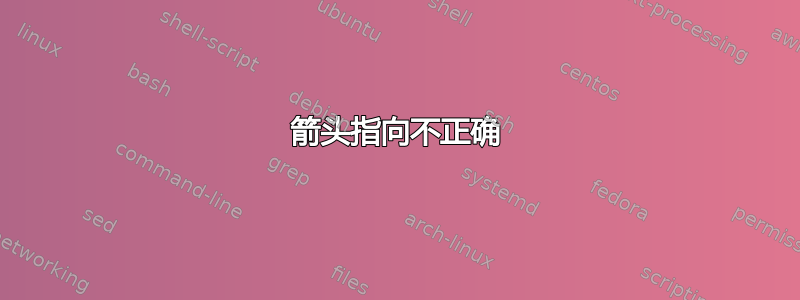
你能帮我把箭头弄好吗?还有,我该如何把它放在sim(u_{a},u_{j})箭头所围的区域内?
\documentclass{article}
\usepackage{tikz}
\usetikzlibrary{matrix,backgrounds}
\begin{document}
\centering
\begin{tikzpicture}[font=\footnotesize]
\matrix(m)[matrix of nodes,
nodes={minimum size=5ex,anchor=center,draw},column 1/.style={nodes={draw=none}},row 1/.style={nodes={draw=none}},
row sep=-\pgflinewidth,
column sep={-\pgflinewidth},
nodes in empty cells,
]{
& $i_{1}$& $i_{2}$ & $i_{3}$ & \dots &$ i_{k}$ & $ i_{a}$ & \dots &$ i_{n}$ \\
$u_{1}$ & & 5 & & 2 & 4 & & & \\
$u_{2}$ & & 5 & 4 & & 5 & & 4 &\\
\dots & & & & & & 1 & 1 & 2 \\
$u_{j}$ & 3 & & \color{blue}\textbf{?} & & \color{blue}\textbf{?} & 3 & & 0 \\
$u_{a}$ & & \color{blue}\textbf{?} & 2 & & 4 & &\color{blue}\textbf{?} & \\
\dots& & \color{blue}\textbf{?} & 2 & & 4 & &\color{blue}\textbf{?} & \\
$u_{6}$ & & \color{blue}\textbf{?} & 2 & & 4 & &\color{blue}\textbf{?} & \\
};
\begin{scope}[on background layer]
\fill[orange!30](m-2-5.north west)rectangle(m-6-5.south east);
\fill[gray!30](m-2-5.north west)rectangle(m-8-6.south east);
\fill[orange!30](m-4-2.north west)rectangle(m-4-9.south east);
\end{scope}
\draw[-latex](m-6-9.east)--+(1,0)node[above right]{User-based similarity measure}|-(m-5-9.east);
\node[left]at(m-4-1.west){Active User};
\draw[-latex](m-2-5.north west)--+(1,0)node[below right]{Item-based }|-(m-8-6.south east);
\end{tikzpicture}
\end{document}
答案1
这样就修复了箭头。
\documentclass{article}
\usepackage{tikz}
\usetikzlibrary{matrix,backgrounds}
\begin{document}
\centering
\begin{tikzpicture}[font=\footnotesize]
\matrix(m)[matrix of nodes,
nodes={minimum size=5ex,anchor=center,draw},column 1/.style={nodes={draw=none}},row 1/.style={nodes={draw=none}},
row sep=-\pgflinewidth,
column sep={-\pgflinewidth},
nodes in empty cells,
]{
& $i_{1}$& $i_{2}$ & $i_{3}$ & \dots &$ i_{k}$ & $ i_{a}$ & \dots &$ i_{n}$ \\
$u_{1}$ & & 5 & & 2 & 4 & & & \\
$u_{2}$ & & 5 & 4 & & 5 & & 4 &\\
\dots & & & & & & 1 & 1 & 2 \\
$u_{j}$ & 3 & & \color{blue}\textbf{?} & & \color{blue}\textbf{?} & 3 & & 0 \\
$u_{a}$ & & \color{blue}\textbf{?} & 2 & & 4 & &\color{blue}\textbf{?} & \\
\dots& & \color{blue}\textbf{?} & 2 & & 4 & &\color{blue}\textbf{?} & \\
$u_{6}$ & & \color{blue}\textbf{?} & 2 & & 4 & &\color{blue}\textbf{?} & \\
};
\begin{scope}[on background layer]
\fill[orange!30](m-2-5.north west)rectangle(m-6-5.south east);
\fill[gray!30](m-2-5.north west)rectangle(m-8-6.south east);
\fill[orange!30](m-4-2.north west)rectangle(m-4-9.south east);
\end{scope}
\draw[-latex](m-6-9.east)--+(1,0)node[above right]{User-based similarity measure}|-(m-5-9.east);
\node[left]at(m-4-1.west){Active User};
\draw[latex-] (m-1-6) -- ++ (-1,1) node[above left,align=left]
{Item preference score is\\ predicted for active user};
\draw[-latex]([xshift=-2pt]m-8-6.south east)--++(0,-1) -|
([xshift=2pt]m-8-5.south west)
node[pos=0.25,below]{Item-based}
node[pos=0.25,above,font=\tiny]{$\mathrm{sim}(u_{a},u_{j})$};
\end{tikzpicture}
\end{document}
这是获得相同结果的另一种方法(不一定更好)。它不是在背景层上填充(这完全没问题),而是通过样式填充单元格。
\documentclass[tikz,border=3.14mm]{standalone}
\usetikzlibrary{matrix}
\begin{document}
\begin{tikzpicture}[font=\footnotesize,b/.style={text=blue,font=\bfseries}]
\matrix(m)[matrix of nodes,
nodes={minimum size=5ex,anchor=center,draw},
row 1/.style={nodes={draw=none,fill=none}},
column 5/.style={nodes={fill=gray!30}},
column 6/.style={nodes={fill=gray!30}},
row 4/.style={nodes={fill=orange!30}},
column 1/.style={nodes={draw=none,fill=none}},
row sep=-\pgflinewidth,
column sep={-\pgflinewidth},
nodes in empty cells,
]{
& $i_{1}$& $i_{2}$ & $i_{3}$ & \dots &$ i_{k}$ & $ i_{a}$ & \dots &$ i_{n}$ \\
$u_{1}$ & & 5 & & 2 & 4 & & & \\
$u_{2}$ & & 5 & 4 & & 5 & & 4 &\\
|[fill=none]|\dots & & & & & & 1 & 1 & 2 \\
$u_{j}$ & 3 & & |[b]| ? & & |[b]| ? & 3 & & 0 \\
$u_{a}$ & & |[b]| ? & 2 & & 4 & &|[b]| ? & \\
\dots& & |[b]| ? & 2 & & 4 & &|[b]| ? & \\
$u_{6}$ & & |[b]| ? & 2 & & 4 & &|[b]| ? & \\
};
\draw[-latex](m-6-9.east)--+(1,0)node[above right]{User-based similarity measure}|-(m-5-9.east);
\node[left]at(m-4-1.west){Active User};
\draw[latex-] (m-1-6) -- ++ (-1,1) node[above left,align=left]
{Item preference score is\\ predicted for active user};
\draw[-latex]([xshift=-2pt]m-8-6.south east)--++(0,-1) -|
([xshift=2pt]m-8-5.south west)
node[pos=0.25,below]{Item-based}
node[pos=0.25,above,font=\tiny]{$\mathrm{sim}(u_{a},u_{j})$};
\end{tikzpicture}
\end{document}





